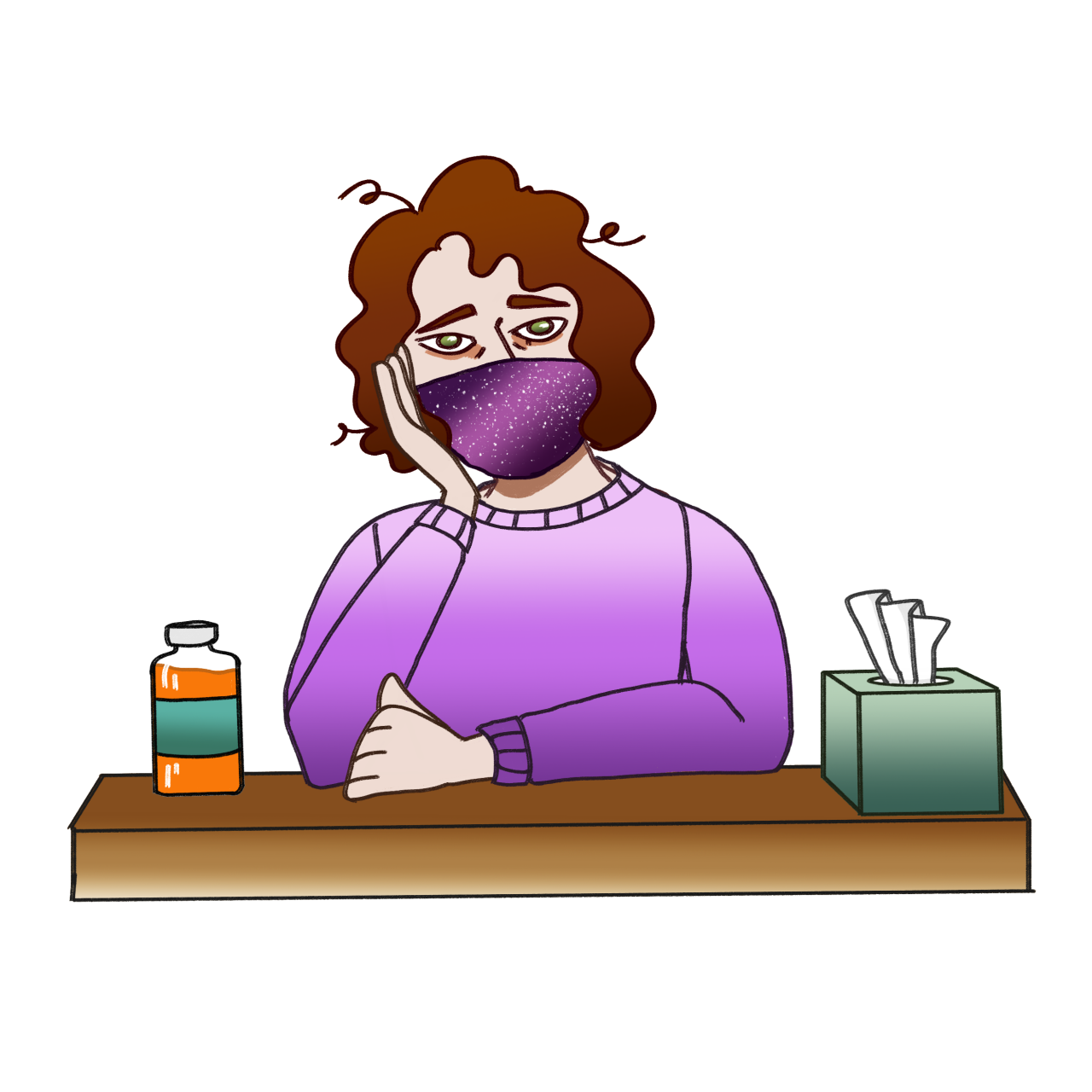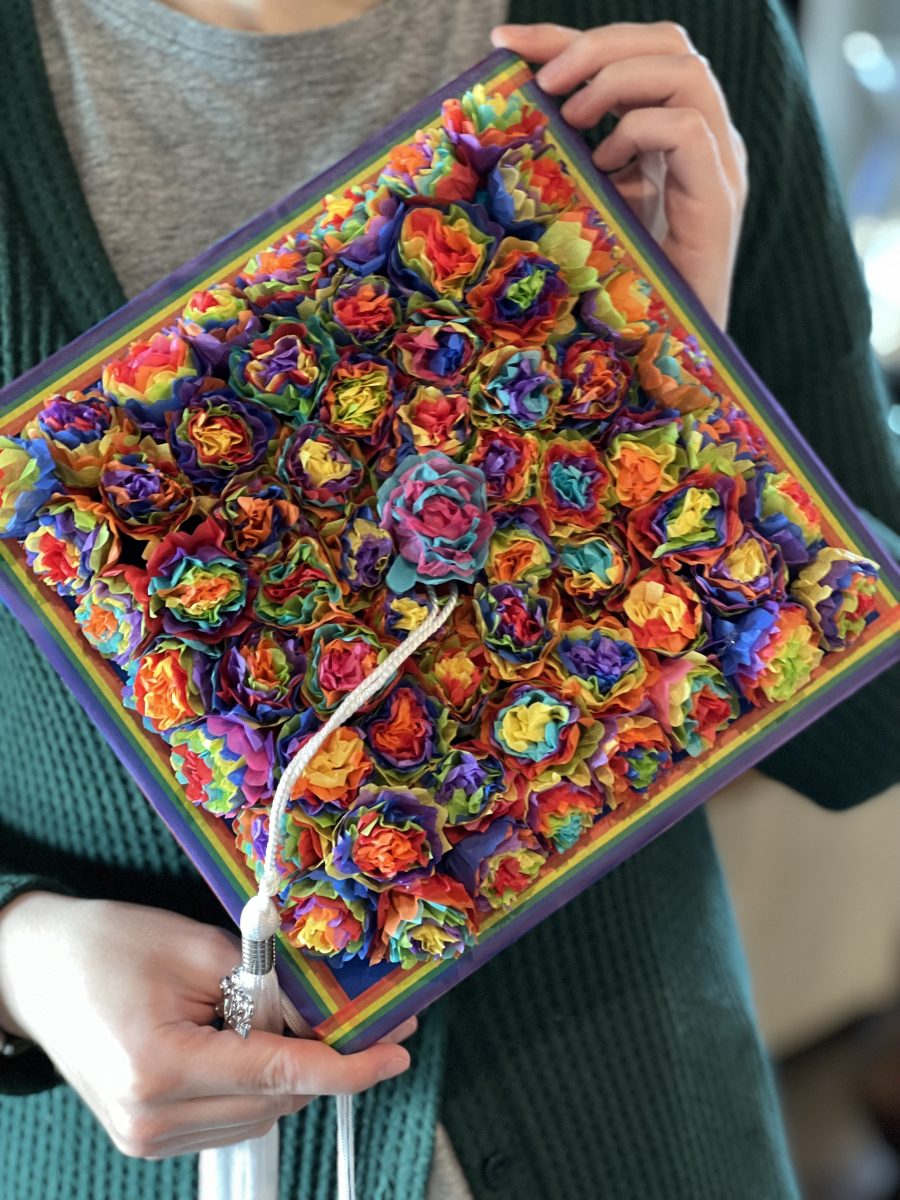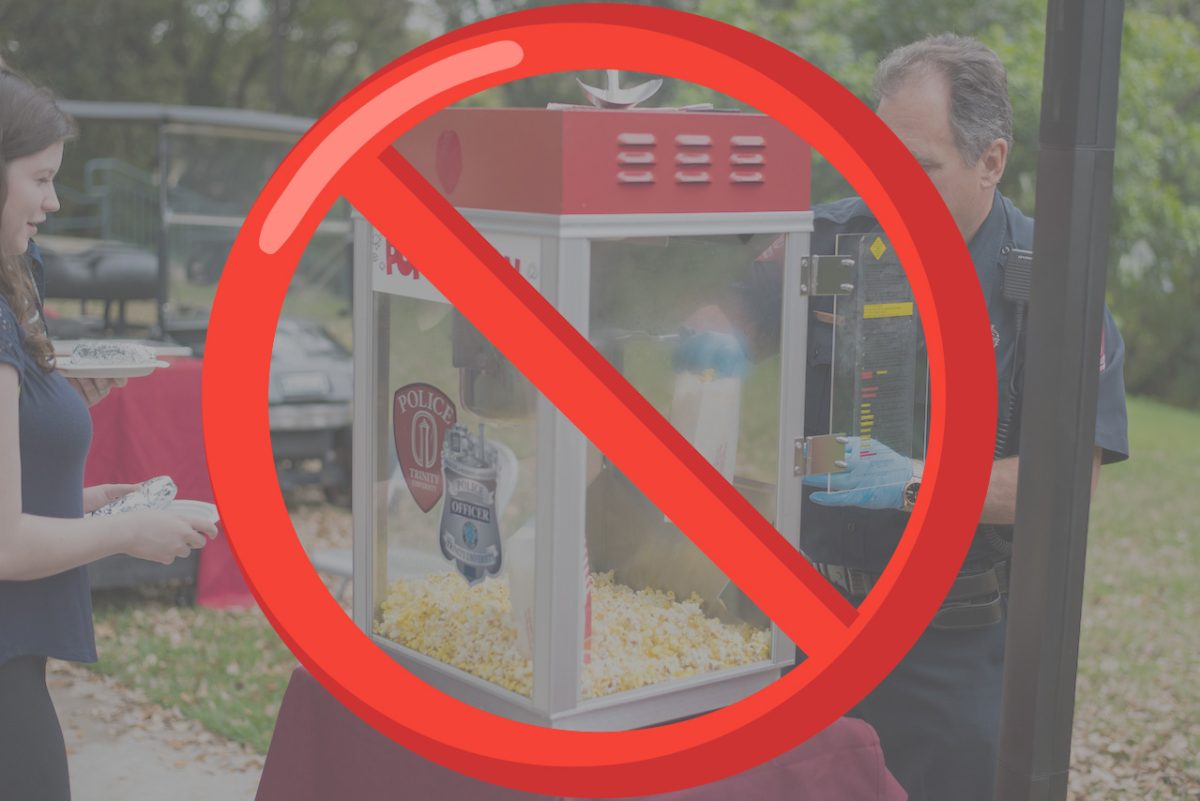I get sick every Spring semester like clockwork. It is never the flu, but instead, a seasonal head cold that plagues me for a month before slowly tapering off. Being the overachiever I am, I pack my bag with tissues and throat lozenges, take more Dayquil than is probably wise, and go to class instead of recuperating at home to make sure that I don’t miss anything. During my senior year of high school while I was miserable with one of these head colds – sitting in a computer lab behind a fort of used tissues -I decided I had had enough. I began researching washable face masks on Etsy. I had seen them in anime before (cliché, I know) and figured that the least I could do was make sure my bad choices didn’t affect others. It would keep me from sneezing on my classmates, and have the added bonus of preventing others from seeing my crusty nose and chapped lips.
I pitched the idea to a family member when I got home, and it was immediately shot down. They told me that a mask would get snotty quickly, they would be hard to breathe in, and it would either make me look deathly ill or like a paranoid fool. I ended up not buying a cloth mask out of fear that they would be right — and three years later, the same family member asked me to sew masks for the family during the pandemic, when they were suddenly necessary. Looking back, I realize now that all of their arguments against wearing a mask had nothing to do with the well-being of others, but rather how wearing a mask would affect me personally. That’s not the point of wearing a mask at all. Cloth masks are not meant to protect the wearer. That’s a hard thing to come to terms with during a pandemic; we want to be able to wear something that will protect us from all possible germs so we can get back to living our lives. Instead, masks act as a form of herd immunity during a pandemic because if everyone is wearing a mask, then anyone who might be sick can’t infect anyone else. It is such a simple solution, and yet it has worked so well in so many countries! So why hasn’t it worked for us here in America?
America has a strong individualist culture to a fault. People tend to look out for themselves due to the myth of the American dream. This dream consists of pulling yourself up by your bootstraps and making your own way, being too proud of your self-reliance to accept help from others. “If masks don’t protect me, why should I wear one? I haven’t been wearing a mask and I haven’t gotten sick!” This is because others have been wearing masks to prevent the spread, and you’ve gotten lucky. Americans often need incentive to do things for the good of others. Take my refusal to stay home and get better when I would get sick in the spring — there are often no measures in place to encourage students to stay home, but rather a looming threat of make-up work and the risk of falling behind that will grow by the day if you miss class. As such, students would rather risk getting others sick for their own benefit, rather than falling behind for the benefit of the health of others.
Countries that have successfully flattened the curve tend to be more collectivist — take South Korea as an example. Their culture places an emphasis on family and how their actions affect others; families look out for each other, companies are structured similarly to a family unit, and the actions of one person reflect on the greater family they belong to. It makes more sense that they would adapt better to wearing masks for the good of the collective, because they already tend to keep others in mind when making decisions. Additionally in South Korea, face masks were already in use both practically and aesthetically; masks are often worn when one is sick, but are also used by teens and young adults as a fashion accessory. They were already normalized due to this dual purpose, which made them more accessible when they became necessary for daily life.
We can’t change the past. We can’t go back in time and normalize mask wearing so that our COVID experience would be better now. What we can do now is take what we’ve learned about mask-wearing, apply it forward to the coming flu season, and maintain the habit specifically for the sake of others. If we continue to wear masks, even long after the pandemic has passed, we can make sure to protect both ourselves through example and others through practical use. It costs us nothing to be kind to each other — and we’ll look good doing it, too!








